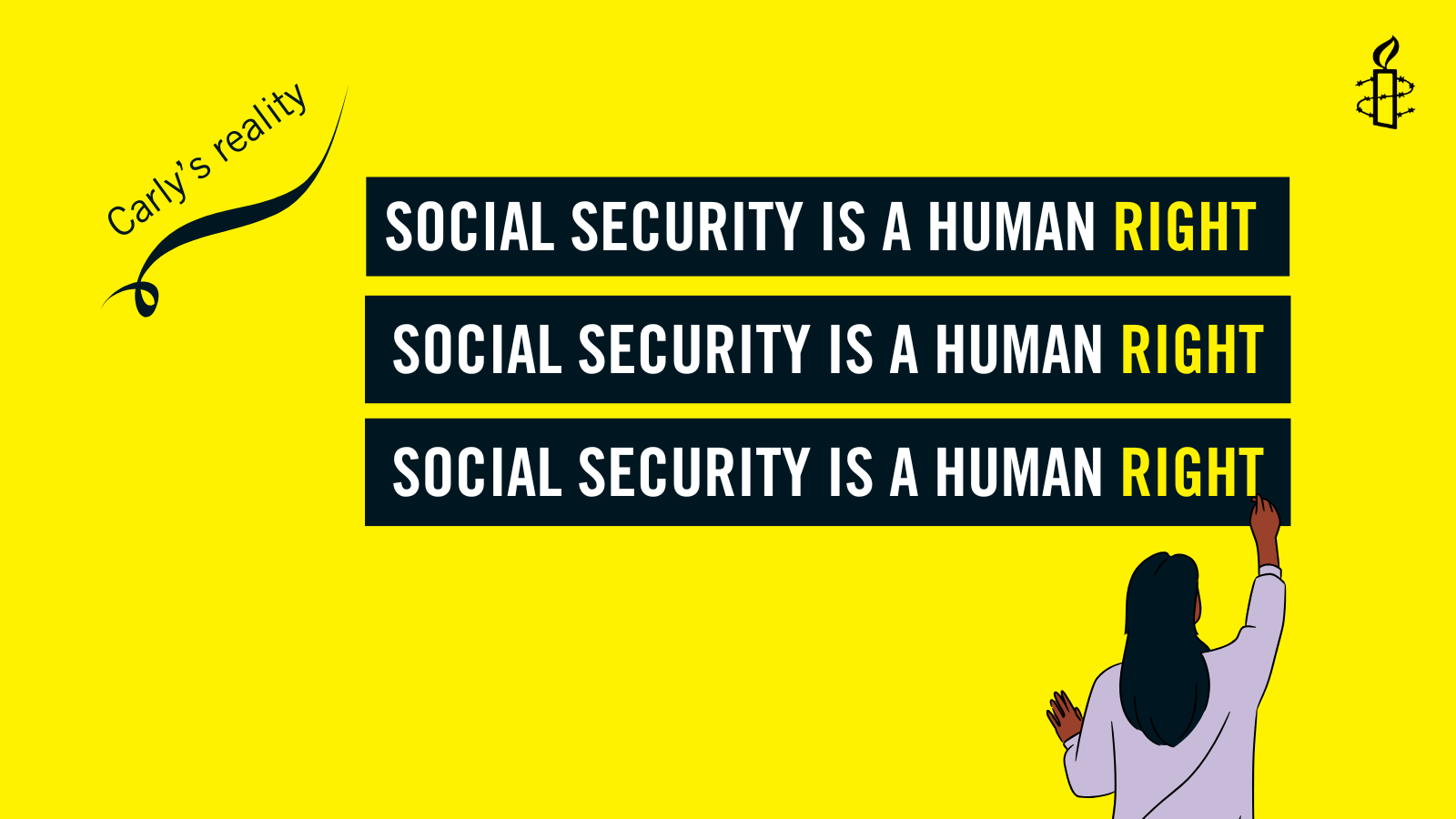Carly's reality

I live in London, and I am mum to a young son. I currently don’t need social security, but was recently receiving Universal credit, with contributions towards my housing and my son’s childcare costs. Despite having good knowledge of the process from my job I found navigating the social security system difficult.
The difficulties came when I had to move into private housing. I am a single parent and was working in a temporary role, but I wasn’t earning enough to cover the rent. My son had just started nursery, and I had a lot of expenses that my salary couldn’t cover. I applied for benefits but had to wait five weeks until I received any payments – which was a very difficult time.
When my role was made permanent, I got a lump sum of holiday pay in my paycheck – meaning I was paid more that month than I usually would be. Unexpectedly, this led to my benefits claim being incorrectly cancelled. I wasn’t contacted about this and had no idea until the money didn’t appear in my bank account. I remember so clearly being on my way to work at the train station and calling them. I was crying on the phone telling them I couldn’t pay my rent. One of the most infuriating things is that they can’t help you, there’s nothing they can do. It’s not their fault though; they stick to the script. But it is so infuriating.
I had a terrible ten-week wait until my social security payments started again and I had to borrow money from friends and family to manage. I was offered an advance before the claim came through – but I’d already had one to pay for nursery fees and didn’t want to get into further debt. It felt so unfair that my only option was to borrow money when it wasn’t my fault.
I did lodge a complaint about the cancellation of my benefits, but the claim wasn’t upheld, and I felt I didn’t have the time or energy to fight it.
The hardest thing about the social security system is the uncertainty and insecurity around it all. In the beginning particularly, it was very mentally challenging to not know when or how much my payments would be. I would regularly have to upload evidence of my bills, such as invoices for rent or from the nursery, but what was required would seem to vary without my being informed. I lived in fear of uploading the wrong information and having my benefits cancelled again. The worst part is the feeling like you have no control over anything. You always feel insecure. I felt that a lot because of what happened to me at the beginning (the wait). It was always a relief when the universal credit went in, and it was the amount you were expecting.
Another hard part of being in this system was the financial juggling and lack of flexibility on payment dates. I had different payments coming out at different times, so I was always having to make choices about which one to prioritise – which one could I be late on? The nursery and landlord wouldn’t move their payment date and neither would universal credit – no one would compromise. There’s just no flexibility, it’s like talking to machines. I felt so vulnerable, even though I had a salary. I could pay one thing but still couldn’t pay something very significant. The things you don’t want to miss paying are your rent or your nursery fees. It always felt very precarious.
The amount I received was barely enough to live on – despite also being in work. Even with my salary, it was hard – and I wasn’t in a terrible job, I was in a senior manager position. But my salary and universal credit wasn’t enough. In the pandemic, we got an increase of £80. That was actually the time I needed it least as I wasn’t doing much. When we came out of the pandemic, we walked straight into a cost of living and energy crisis and everything went up. We also went out more, like going to soft play. But they took the £80 away from us. That was really difficult and highlighted the fact that we weren’t getting enough in the first place. I got used to that extra £80 and then it was taking away when all costs had gone up. £80 was a lot to lose.
I am aware of the narrative and stigma around being on benefits, even though I also worked like many others. I felt conscious about taking my child to activities, such as soft play, in case I was judged. The system feels like it’s designed to work against us. The stigma is real, navigating the system only amplifies it, making an already difficult situation even harder. You have no autonomy, no choice, there’s nothing you can do. It creates a feeling that you aren’t deserving or worthy. That you should be grateful and not challenge anything.